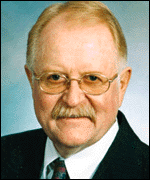

![]()
Pacific Perspective


![]()
Pacific Perspective
Beyond the civilian casualties and the emotional impact of the deaths and injuries that resulted from the attacks on the World Trade Center and the Pentagon, every intrusion that has been felt socially and economically in the United States has been felt in much of the world, but especially in Asia. Ripple effects of U.S. attacks
felt across AsiaIn the United States, profiling has become necessary and religious consciousness has increased dramatically. In Asia, Muslims have uniformly come under greater suspicion in countries with non-Muslim governments. Governments are cracking down and civil liberties are weaker than they have been since the early 1990s. In the Philippines and China especially, "fundamentalism" has become more strongly equated with threat and greater resources are being mobilized to suppress what might otherwise be benevolent but conservative religious groups.
Within Islamic countries like Indonesia, Pakistan and Malaysia, some fundamentalist groups have turned more radical, polarizing these societies between moderate Muslim governments and radical Islamist wings. Conflict that has previously been held in check has now erupted in the streets.
The economic displacement that has occurred in the United States compounds the disruptions that are occurring in all Asian societies. The United States -- the world's primary market -- is importing less. Some of this is due to a slowdown that began before Sept. 11 but has been multiplied by the inward focus in the last two months and jumps in unemployment since the attacks. This closure in the U.S. market in turn causes both job losses in the exporting countries and a shrinking of foreign reserves that support general business activity and social services throughout Asia.
For countries with significant Muslim fundamentalist movements or that are proximate to Islamic states, political risk insurance premiums -- especially for political violence insurance -- have risen in the wake of Sept. 11 and overall insurance exposure has been limited, sometimes dramatically. These changes in insurance and guarantees have in turn brought about reductions in much needed new foreign investment and ongoing trade. Every Asian economy suffers from these inhibitions to normal commerce.
The profound effect on tourism in Asia deserves special attention. Tourism is not only the largest industry globally but it is the one with the greatest potential for expansion. Escape from poverty by some countries like Myanmar (Burma), Laos and Indonesia can only be accomplished by a successful incorporation of tourism into national economic agendas.
The Sept. 11 attacks have brought about what will be a long- term unwillingness to venture far from home for potential tourists. Load factors on commercial airlines are down 30 percent to 40 percent and advance bookings are down 40 percent to 70 percent. This, in turn, will permanently bring about a reduction in earning and in economic direction in every Asian society.
The compounded impact of religious division, economic diminishment and related disorder, and the semi-permanent contraction of its most critical industry, place Asian states in a dire set of circumstances.
Llewellyn Howell is director of executive MBA programs at the University of Hawaii College of Business Administration and president of Howell International Inc., a political risk consulting firm.